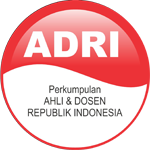Analysis of Demotivating Factors Affecting Students’ Willingness to Speak English
Abstract
The hesitation to speak English in the class was the crucial problem that occurred in semester seven students of the English Department of Timor University. This study figured out the discouraging points that influence the students' eagerness to speak English in the class, the most dispiriting factors, and the attempt that they executed to overcome their problem. The subject of the study was 30 semester seven students of the English Department of Timor University. The qualitative method was employed to analyze the data in this study. Interview and questionnaire were applied as the instruments to obtain the data. The result of the study pinpointed that there were internal and external factors that affect discouraging students in the classroom. The finding also revealed that the most demotivating factors which affected the students' willingness to communicate in English were motivation and confidence. The students also performed a few things to overcome their problems. The conclusion required the students to prompt themselves and be prompted by other people to pursue a good interaction in English.
Keywords: demotivating, students, willingness
Full Text:
PDFReferences
Ahmed Mahdi, D. (2014). Willingness to communicate in English: A case study of EFL students at King Khalid University. English Language Teaching, 7(7), 17–25. https://doi.org/10.5539/elt.v7n7p17
Apriani, E., Anshori, S., & Edy, S. (2019). Eksistensi English Zone Sebagai Media Penerapan Kemampuan Berbahasa Inggris Mahasiswa Program Studi Tadris Bahasa Inggris IAIN CURUP. Cendekia: Jurnal Kependidikan Dan Kemasyarakatan, 17(2), 317-332.
Aomr, J. A. W., Seng, G. H., & Kapol, N. (2020). Relationship between willingness to communicate in English and classroom environment among Libyan EFL learners. Universal Journal of Educational Research, 8(2), 605–610. https://doi.org/10.13189/ujer.2020.080232
Bernales, C. (2016). Towards a comprehensive concept of Willingness to Communicate: Learners’ predicted and self-reported participation in the foreign language classroom. The system, 56, 1–12. https://doi.org/10.1016/j.system.2015.11.002
Bire, J. (2016). Issues in teaching English as a foreign language in Indonesia and the case of NTT. Kupang, Indonesia: Undana press.
Bukhari, S.F., Cheng X., and Khan, SA. (2015). Willingness to communicate in English as a second language: A case study of Pakistani undergraduates.Journal of education and practice,29 (6), 39-44, Retrieved from https://files.eric.ed.gov/fulltext/EJ1081256.pdf.
Creswell, J. W. (2009). Research design: Qualitative, quantitative, and mixed-method approaches. California, USA: Sage publications. Inc.
Crystal, D. (2003). English as a global language. New York, USA: Cambridge university press.
Gusmuliana, P., & Apriani, E. (2021, March). Improving Students Speaking Motivation by Using Role Play Technique at Institute Islamic in Indonesia. In International Conference on Educational Sciences and Teacher Profession (ICETeP 2020) (pp. 356-361). Atlantis Press.
Juhana. (2012). Psychological factors that hinder students from speaking in English class: A case study in a senior high school in south Tangerang in Banten, Indonesia. Journal of Education and Practice, 12 (3), 100-110, Retrieved from https://www.iiste.org/Journals/index.php/JEP/article/viewFile/2887/2913
Kho-Yar, A. S., Rafik-Galea, S., & Hwee KHO, E. A. (2018). Willingness to Communicate in English among ESL Undergraduates in Malaysia. Journal of Cognitive Sciences and Human Development, 4(1), 28–34. https://doi.org/10.33736/jcshd.1059.2018
Kruk, M. (2018). Factors influencing willingness to communicate in English in Chapter 4 Factors Influencing Willingness to Communicate in English in Second Life ( Mariusz Kruk ) University of Zielona Góra Institute of Neophilology, (July).
Lahuerta, A. C. (2013). Factors affecting willingness to communicate in a Spanish university context. International Journal of English Studies, 14(2), 39–55. https://doi.org/10.6018/j.193611
Maryansyah, Y. (2019). A study on English students’ willlingness to communicate in English in social media. Journal of English education, 8(1), 31. https://doi.org/10.24127/pj.v8i1.1930.
McNamara, C. (1999). General Guidelines for Conducting Interviews, Authenticity Consulting, LLC, Retrieved from: http://www.managementhelp.org/evaluatn/interview.htm
Ningsih, S. K., Narahara, S., & Mulyono, H. (2018). An exploration of factors contributing to students’ unwillingness to communicate in a foreign language across Indonesian secondary schools. International Journal of Instruction, 11(4), 811–824. https://doi.org/10.12973/iji.2018.11451a
Pakpahan, M., Ikhsanudin, & Sada Clarry. (2017). Factors Affecting Efl Students ’ Unwillingness. Teacher Training and Education Faculty, Tanjungpura University, Pontianak, 6(6), 1–11.
Riasati, M. J., & Rahimi, F. (2018). Situational and individual factors engendering willingness to speak English in foreign language classrooms. Cogent Education, 5(1). https://doi.org/10.1080/2331186X.2018.1513313
Siagian, U. M., & Adam, A. (2017). An Analysis of Students’ Anxiety in Speaking. ANGLO-SAXON: Jurnal Ilmiah Program Studi Pendidikan Bahasa Inggris, 8(1), 03. https://doi.org/10.33373/anglo.v8i1.978
Timor University. (2016). Kurikulum universitas Timor. Kefamenanu, East Nusa Tenggara., Indonesia: Lecturers of English department.
Toubot, A. M., Hock Seng, G., & Binti Atan Abdullah, A. (2018). Examining Levels and Factors of Speaking Anxiety among EFL Libyan English Undergraduate Students. International Journal of Applied Linguistics and English Literature, 7(5), 47. https://doi.org/10.7575/aiac.ijalel.v.7n.5p.47
Tuyen, L. V., & Loan, T. T. T. (2019). Factors Affecting EFL Students’ Willingness to Communicate in Speaking Classes at the Vietnamese Tertiary Level. International Journal of English Literature and Social Sciences, 4(2), 252–262. https://doi.org/10.22161/ijels.4.2.10
Vongsila, V., & Reinders, H. (2016). Making Asian Learners Talk: Encouraging Willingness to Communicate. RELC Journal, 47(3), 331–347. https://doi.org/10.1177/0033688216645641
Wijaya, H.,& Rizkina, P.A. (2015). Factors affecting students’ willingness to communicate: A case study in higher education. 7th international conference on teaching English as a foreign language. Retrieved from https://s3.amazonaws.com/academia.edu.documents/37697491/Factors_Affecting_Indonesian_Students_Willingness_to_Communicate_A_Case_Study_in_Higher_Education.pdf?AWSAccessKeyId=AKIAIWOWYYGZ2Y53UL3A&Expires=1527115658&Signature=kthuBkYVQNoyH0vY%252Fup3depvz5k.
Yousef, R., Jamil, H., & Razak, N. (2013). Willingness to communicate in English: A study of Malaysian pre-service English teachers.Canadian centre of science and education. 9(6), 205-216, Retrieved from https://www.researchgate.net/publication/285947103_Willingness_to_Communicate_in_English_A_Study_of_Malaysian_Pre-Service_English_Teachers/link/56f156ce08aed354e56fb2a1/download.
DOI: http://dx.doi.org/10.29240/ef.v5i1.2026
Refbacks
- There are currently no refbacks.
Copyright (c) 2021 Erlinda Sonya Pale, Maria Wihelmina Wisrance

This work is licensed under a Creative Commons Attribution-NonCommercial-ShareAlike 4.0 International License.
INDEXED BY:
 This work is licensed under a Creative Commons Attribution-NonCommercial-ShareAlike 4.0 International License
This work is licensed under a Creative Commons Attribution-NonCommercial-ShareAlike 4.0 International License
@ ENGLISH FRANCA : Academic Journal of English Language and Education
Jl. Dr. AK Gani No 1 Dusun Curup, Rejang Lebong Regency, Bengkulu Province, Indonesia, 39119.
Dr. Eka Apriani, M.Pd., email: efranca@iaincurup.ac.id, eka.apriani@iaincurup.ac.id.




.png)












